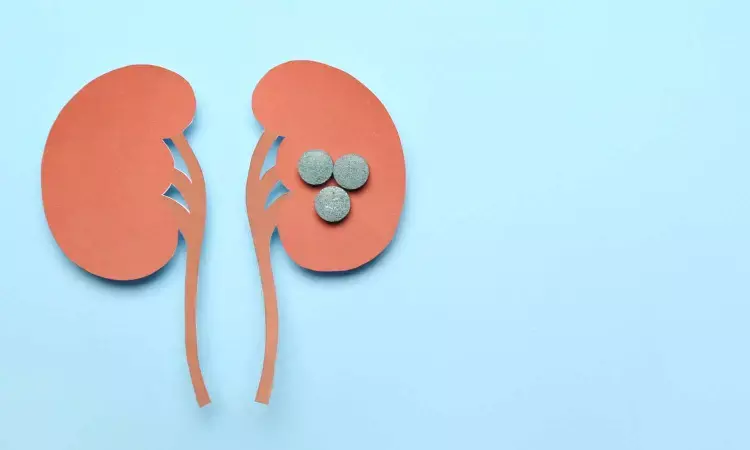- Home
- Medical news & Guidelines
- Anesthesiology
- Cardiology and CTVS
- Critical Care
- Dentistry
- Dermatology
- Diabetes and Endocrinology
- ENT
- Gastroenterology
- Medicine
- Nephrology
- Neurology
- Obstretics-Gynaecology
- Oncology
- Ophthalmology
- Orthopaedics
- Pediatrics-Neonatology
- Psychiatry
- Pulmonology
- Radiology
- Surgery
- Urology
- Laboratory Medicine
- Diet
- Nursing
- Paramedical
- Physiotherapy
- Health news
- Fact Check
- Bone Health Fact Check
- Brain Health Fact Check
- Cancer Related Fact Check
- Child Care Fact Check
- Dental and oral health fact check
- Diabetes and metabolic health fact check
- Diet and Nutrition Fact Check
- Eye and ENT Care Fact Check
- Fitness fact check
- Gut health fact check
- Heart health fact check
- Kidney health fact check
- Medical education fact check
- Men's health fact check
- Respiratory fact check
- Skin and hair care fact check
- Vaccine and Immunization fact check
- Women's health fact check
- AYUSH
- State News
- Andaman and Nicobar Islands
- Andhra Pradesh
- Arunachal Pradesh
- Assam
- Bihar
- Chandigarh
- Chattisgarh
- Dadra and Nagar Haveli
- Daman and Diu
- Delhi
- Goa
- Gujarat
- Haryana
- Himachal Pradesh
- Jammu & Kashmir
- Jharkhand
- Karnataka
- Kerala
- Ladakh
- Lakshadweep
- Madhya Pradesh
- Maharashtra
- Manipur
- Meghalaya
- Mizoram
- Nagaland
- Odisha
- Puducherry
- Punjab
- Rajasthan
- Sikkim
- Tamil Nadu
- Telangana
- Tripura
- Uttar Pradesh
- Uttrakhand
- West Bengal
- Medical Education
- Industry
FDA approves oral daprodustat for treating anaemia in CKD patients on dialysis

The US Food and Drug Administration (FDA) has approved oral daprodustat (Jesduvroq) for treating anemia in patients with chronic kidney disease (CKD) who are on dialysis.
Jesduvroq is not approved for patients who are not on dialysis. Other FDA-approved treatments for this condition are injected into the blood or under the skin.
“With an oral drug option in addition to the FDA-approved injection options, adults with chronic kidney disease on dialysis now have multiple ways to treat their anemia,” said Ann Farrell, M.D., director of the Division of Non-Malignant Hematology in the FDA’s Center for Drug Evaluation and Research. “This approval demonstrates the FDA’s commitment to helping bring a range of therapeutic options to patients with chronic diseases. Patients can consult with their healthcare providers to select the option that is most appropriate.”
More than a half million adults in the U.S. have chronic kidney disease requiring dialysis (a treatment that filters the blood and removes excess fluid from the blood). Kidneys produce a hormone called erythropoietin, which signals the body to make red blood cells. In a person with chronic kidney disease on dialysis, the kidneys cannot produce enough erythropoietin, leading to reduced numbers of red blood cells.
Jesduvroq increases erythropoietin levels. The effectiveness of Jesduvroq was established in a randomized study of 2,964 adults receiving dialysis. In this study, adults received either oral Jesduvroq or injected recombinant human erythropoietin (a standard of care treatment for patients with anemia due to chronic kidney disease). Jesduvroq raised and maintained the hemoglobin (the protein in red blood cells that carries oxygen and is a common measure of anemia) within the target range of 10-11 grams/deciliter, similar to that of the recombinant human erythropoietin.
Jesduvroq has a boxed warning for an increased risk of thrombotic vascular (blood clotting) events including death, heart attack, stroke, and blood clots in the lungs, legs, or dialysis access site. Jesduvroq’s warnings and precautions include a risk of hospitalization for heart failure, worsening increase of blood pressure, and stomach erosions and gastrointestinal bleeding.
Jesduvroq is not approved for patients with anemia due to chronic kidney disease who are not on dialysis because its safety has not been established in that population.
The most common side effects of Jesduvroq include high blood pressure, thrombotic vascular events, abdominal pain, dizziness and allergic reactions.
Patients should not use Jesduvroq if they also take certain drugs that cause increased levels of Jesduvroq or if they have uncontrolled high blood pressure.
Dr Kamal Kant Kohli-MBBS, DTCD- a chest specialist with more than 30 years of practice and a flair for writing clinical articles, Dr Kamal Kant Kohli joined Medical Dialogues as a Chief Editor of Medical News. Besides writing articles, as an editor, he proofreads and verifies all the medical content published on Medical Dialogues including those coming from journals, studies,medical conferences,guidelines etc. Email: drkohli@medicaldialogues.in. Contact no. 011-43720751


